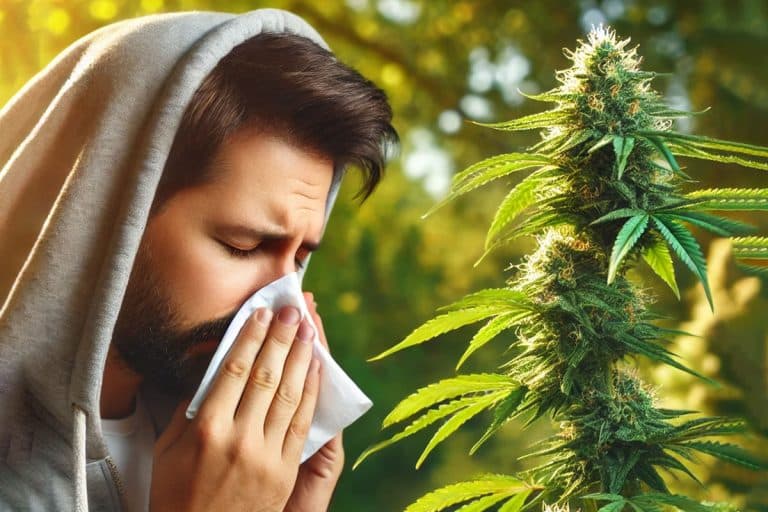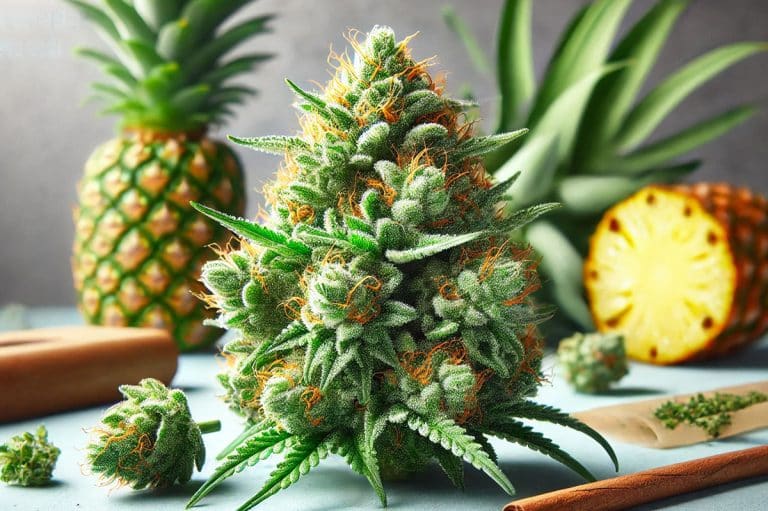Cannabis and Heart Race: Understanding the Effects on Your Cardiovascular System
Cannabis is widely known for its relaxing and euphoric effects, but some users experience an increased heart rate, also known as tachycardia, shortly after consumption. This sudden racing heart can be unsettling and cause anxiety for many, especially those new to cannabis or those with underlying health concerns. In this blog, we’ll explore why cannabis can cause your heart to race, what factors influence this reaction, and how to manage or prevent it. Whether you’re a casual consumer or considering cannabis for medicinal purposes, understanding the cardiovascular effects of cannabis is essential.
What Causes Cannabis-Induced Increased Heart Rate?
Cannabis use can lead to a variety of side effects, ranging from mild ones like red eyes, dry mouth, and increased appetite to more uncomfortable reactions such as anxiety, paranoia, and short-term memory challenges.
These effects, including those on the cardiovascular system, stem from cannabis’s influence on the endocannabinoid system — a complex network that regulates numerous bodily functions like hunger, pain, sleep, and energy.
The key active compounds in cannabis, known as cannabinoids, interact with receptors within the endocannabinoid system. This interaction alters the activity of these receptors and the various bodily systems they influence, including the heart and cardiovascular functions.
The primary culprit behind the cannabis-induced increase in heart rate is tetrahydrocannabinol (THC), the main psychoactive compound in cannabis. THC interacts with the body’s endocannabinoid system (ECS), which plays a vital role in regulating various physiological functions, including cardiovascular health.
THC and the Endocannabinoid System
When THC binds to cannabinoid receptors (CB1 and CB2) found throughout the body, including in the heart and blood vessels, it can influence heart rate and blood pressure. Activation of CB1 receptors in the heart is believed to cause an increase in heart rate by stimulating the sympathetic nervous system — the part of the nervous system responsible for the “fight or flight” response. This stimulation can cause your heart to beat faster and more forcefully.
Effects on Blood Vessels and Blood Pressure
Cannabis can cause blood vessels to dilate (vasodilation), which lowers blood pressure. In response, the heart compensates by increasing its rate to maintain adequate blood flow. This combination of lowered blood pressure and increased heart rate can sometimes lead to lightheadedness or dizziness, especially when standing up quickly.
How Common Is Cannabis-Induced Tachycardia?
Research suggests that increased heart rate occurs in 20-50% of cannabis users, particularly after smoking or vaping THC-rich strains. The effect is usually temporary, lasting between 15 minutes to an hour, but it can vary depending on several factors such as dosage, consumption method, and individual sensitivity.
Factors That Influence Heart Rate Response to Cannabis
1. THC Potency and Dosage
Higher THC concentrations and larger doses are more likely to cause noticeable increases in heart rate. New users or those with low tolerance may experience stronger cardiovascular effects from smaller amounts of cannabis.
2. Consumption Method
The method of cannabis consumption can impact how quickly THC enters the bloodstream and the intensity of its effects. Smoking and vaping deliver THC rapidly, often causing a sudden spike in heart rate. Edibles, on the other hand, produce a slower onset but longer-lasting effects, which might lead to a more gradual increase in heart rate.
3. Individual Physiology
Each person’s reaction to cannabis varies based on genetics, cardiovascular health, and endocannabinoid system sensitivity. People with pre-existing heart conditions, high blood pressure, or anxiety disorders may be more prone to experiencing rapid heartbeat or palpitations after cannabis use.
4. Other Substances
Using cannabis alongside stimulants like caffeine or tobacco can amplify the increase in heart rate. Mixing cannabis with alcohol or certain medications can also influence cardiovascular responses.
Why Does Cannabis Make Some People Anxious and Cause Heart Racing?
The racing heart sensation can sometimes trigger or worsen anxiety, creating a feedback loop that heightens discomfort. THC’s stimulating effect on the nervous system can cause an adrenaline rush, which contributes to feelings of nervousness and panic in sensitive individuals.
Is Sativa or Indica More Likely to Affect Your Heart Rate?
Traditionally, cannabis users often describe sativa strains as uplifting and energizing, while indica strains are thought to be relaxing and more likely to cause the infamous “couch lock.” Many consumers rely on these generalizations when choosing what to purchase or consume.
However, scientific research does not strongly support using the indica vs. sativa classification as a reliable predictor of how a cannabis strain will affect you. The effects of a cannabis chemovar are influenced by many factors, and simply labeling it indica or sativa isn’t one of the most meaningful.
What truly matters is the cannabinoid profile of the strain — the levels of THC, CBD, and other cannabinoids — as well as its terpene composition. Terpenes contribute to the flavor and aroma of cannabis, but they may also significantly impact the strain’s effects, including whether the experience feels more stimulating or sedative.
It’s also important to remember that cannabis effects are highly individualized. The ideal dose for one person might differ greatly from another’s. A strain that energizes one user could cause relaxation or sedation in someone else. Similarly, a strain that’s calming to one individual might provoke anxiety or paranoia in another. The same variability applies to how cannabis affects heart rate — increased heart rate might be a common effect for some, but not all users.
Is Cannabis-Induced Increased Heart Rate Dangerous?
For most healthy individuals, a temporary increase in heart rate after cannabis use is not harmful. However, people with heart disease, arrhythmias, or other cardiovascular conditions should exercise caution and consult a healthcare professional before using cannabis.
In rare cases, cannabis-induced tachycardia can lead to chest pain, arrhythmia, or even heart attacks, especially in people with underlying heart problems or those who consume very high doses of THC.
How to Manage or Prevent Cannabis-Induced Heart Racing
1. Start Low and Go Slow
If you’re new to cannabis or sensitive to THC, begin with a low dose and increase gradually. This approach reduces the risk of overwhelming your system and experiencing unpleasant cardiovascular effects.
2. Choose Strains with Lower THC or Higher CBD
Cannabis strains with lower THC content or balanced THC:CBD ratios are less likely to cause heart racing. CBD has calming effects and may counteract some of THC’s stimulatory impacts on the heart.
3. Opt for Edibles or Tinctures
If smoking or vaping causes rapid heart rate, try edibles or tinctures, which have a slower onset and may produce gentler effects on your cardiovascular system.
4. Avoid Mixing with Other Stimulants
Limit or avoid caffeine, tobacco, or other stimulants when consuming cannabis to reduce the risk of overstimulation and tachycardia.
5. Stay Hydrated and Relaxed
Drink water and find a calm, comfortable environment to help your body manage the effects. Deep breathing and mindfulness techniques can also reduce anxiety and heart racing.
6. Be Mindful of Your Health
If you have heart conditions or concerns about your cardiovascular health, speak with a doctor before using cannabis. Always disclose your cannabis use to healthcare providers.
When to Seek Medical Help
If you experience severe chest pain, difficulty breathing, fainting, or a heart rate that does not subside after cannabis use, seek emergency medical attention immediately. While rare, serious cardiovascular events can occur and require prompt treatment.
Final Thoughts
Cannabis can cause an increased heart rate through its interaction with the endocannabinoid system and stimulation of the sympathetic nervous system. While this is a common and typically temporary effect, understanding the factors that contribute to cannabis-induced tachycardia can help you enjoy cannabis safely and comfortably.
By choosing appropriate strains, dosing carefully, and managing your environment, you can minimize the likelihood of heart racing and focus on the many therapeutic and recreational benefits cannabis has to offer.







